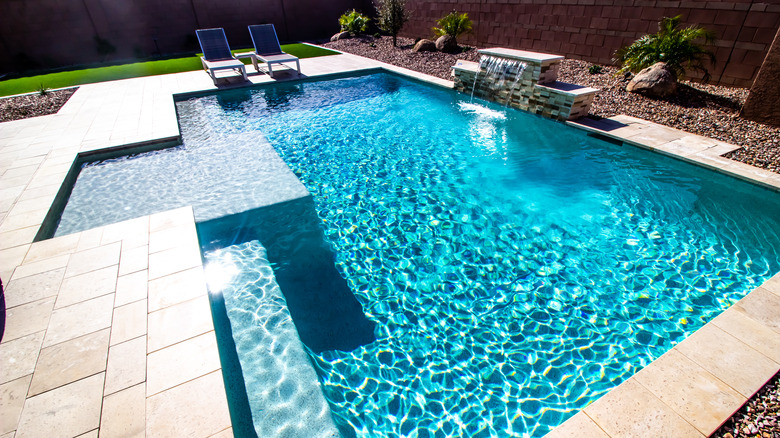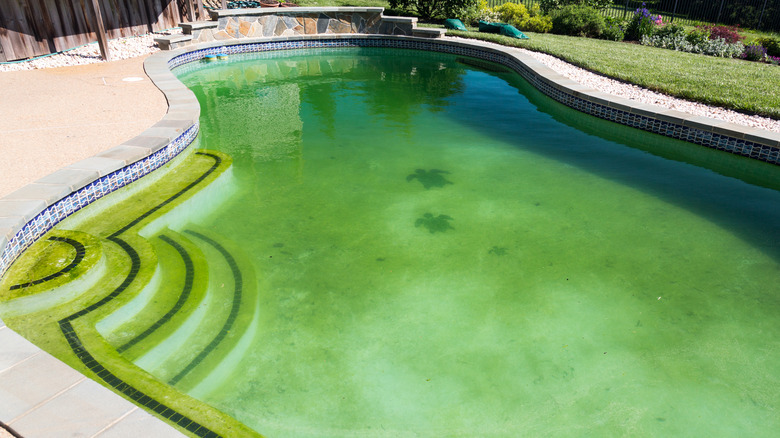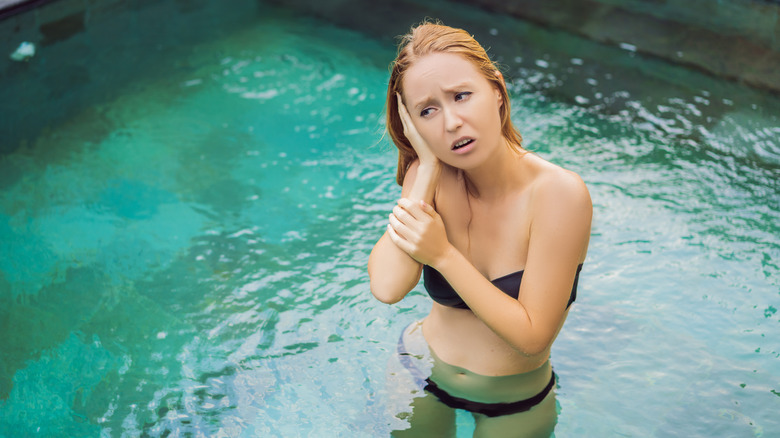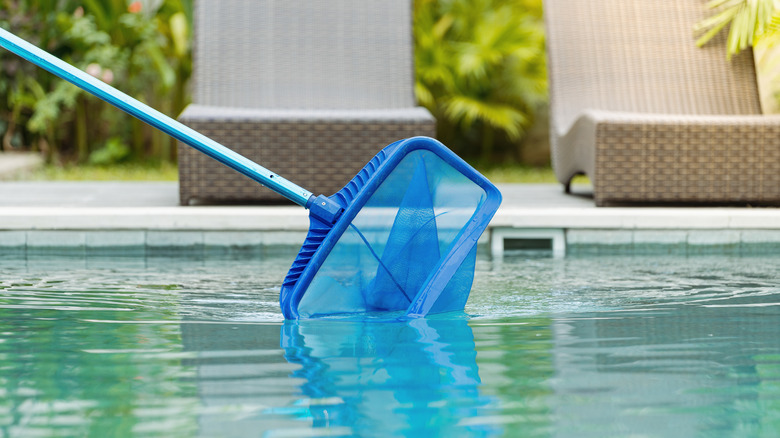The Icky Result From Not Cleaning Your Pool
From splashing around during family time to a relaxing float with a tasty adult beverage, taking a dip in a sparkling clean pool is one of life's little pleasures as soon as the weather starts heating up. All that promising summertime fun is what leads many households to consider adding a pool to an outdoor living space in the first place.
One of the not-so-fun aspects of swimming pool ownership, however, is having to keep it clean. This comes into play when you decide not to hire a pro and instead take care of maintaining your pool on your own. If life gets in the way and you happen to miss a week or two of maintenance, what's the big deal? Well, if you don't tackle pool cleaning tasks regularly, hot weather and other issues can quickly take their toll, leading to an unsightly mess that is less than favorable for your health as well.
Some of the most common problems caused by neglecting your pool
If you immediately see green when you think of an unclean pool, that's a major concern to note. Algae can quickly begin to grow on pool walls and other flat surfaces like tanning ledges and steps when they aren't given a regular brush down. On top of that, a substance called biofilm sticks to surfaces submerged in water making the all-important chlorine you add ineffective, as noted by Realtor.com. Speaking of chlorine, checking and maintaining all chemical levels is an important part of keeping pools clean. Even if you forbid urinating in the pool, every time people use it, a variety of bodily fluids enter the water ranging from perspiration to oils that naturally occur on human skin. All these things can turn a pool into a germ ridden mess.
If someone jumps in your pool with a dirty bottom, things get even worse. A parasite called cryptosporidium found in feces can be a hard-to-kill nightmare. Commonly called crypto, this icky diarrhea-causing bug is only eliminated by raising the chlorine levels higher than normal about once a week. You might have to do that even more often if your pool is seeing heavy use during the summer.
Illness, damage, and repairs resulting from unclean pools
While your main goal might be an aesthetically pleasing aquatic oasis filled with sparkling water, neglecting your backyard investment can also lead to serious issues such as illness. Dirty water can absolutely make your friends and loved ones sick. Ever hear of recreational water illness or RWI? Yes, that's a thing and it translates to infections in ears and eyes, rashes, and diarrhea. This is a very important reason to keep your pool clean by properly maintaining chemical levels.
Considering algae once again, it's not only unpleasant to look at, it's physically dangerous. If not removed, being quite slippery, algae can lead to slipping, sliding, and falling. It's hard to get rid of once it gets out of control, too, and sometimes requires a costly draining of the pool and professional cleaning to completely remove it. Keeping debris out of the pool by skimming and running an automatic pool cleaner is also imperative. Filters can become clogged and tax your pool pump, which can be very expensive to fix or replace if it fails. Even having to get your filters cleaned more often is an added expense you can avoid with a little extra cleaning care.
Steps required for a clean swimming pool
Regardless of the type of pool you have, regular cleaning will keep it ready for summertime fun. As mentioned before, brushing down the sides with a nylon pool brush is necessary to get rid of algae and biofilm. Vacuuming a pool is also required about once a week on flat surfaces to remove small debris that isn't removed by automatic pool cleaners.
Checking the water with a testing kit to determine the pH and alkalinity levels is another part of keeping a pool clean. This information will tell you what chemicals are needed to get the water in balance. You can then add chlorine and other chemicals as needed. Shocking a swimming pool may also be required occasionally to rapidly raise chlorine levels that have fallen too low. This is sometimes done after heavy rainstorms or when you suspect contamination with fecal matter.
And, of course, skimming the surface of the water with a net attached to a long handle is required to keep the water clean. The amount of skimming tends to change over the course of pool seasons, so you might have to do this more than once a day to clear insects and debris like leaves depending on the area where you live and the landscaping surrounding your pool. Even if you hire professionals to do the rest, you'll still need your trusty skimmer to clear the surface each day before jumping in for a swim.



